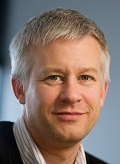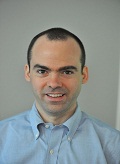Heuristics and Search for Domain-independent Planning (HSDIP)
Heuristics and search algorithms are the two key components of heuristic search, one of the main approaches to many variations of domain-independent planning, including classical planning, temporal planning, planning under uncertainty and adversarial planning. This workshop seeks to understand the underlying principles of current heuristics and search methods, their limitations, ways for overcoming those limitations, as well as the synergy between heuristics and search.
Online Proceedings (hsdip-proceedingsNEW)
The HSDIP workshop is scheduled on the 10th of June in the “Marco Cadoli” B2 room at the Department of Computer, Control and Management Engineering (DIAG), University of Rome “SAPIENZA”.
Schedule
| 9:25-9:30 |
|
|
|
|
|
09:30-09:55 |
Marcel Steinmetz, Jörg Hoffmann and Michael Katz |
|
09:55-10:20 |
Manel Tagorti, Bruno Scherrer, Olivier Buffet and Jörg Hoffmann |
|
10:20-10:30 |
Discussion |
|
10:30-11:00 |
Coffee Break |
|
|
|
|
11:00-11:25 |
Santiago Franco, Mike Barley and Pat Riddle |
|
11:25-11:50 |
Erez Karpas, Ariel Felner, David Tolpin, Solomon Eyal Shimony and Tal Beja |
|
11:50-12:15 |
Mark Roberts, Adele Howe and Indrajit Ray A Tale of t Metrics |
|
12:15-12:30 |
Discussion |
|
12:30-14:30 |
Lunch Break |
|
|
|
|
14:30-14:55 |
Vidal Alcázar |
|
14:55-15:20 |
Simon Vernhes, Guillaume Infantes and Vincent Vidal |
|
15:20-15:45 |
Guy Shani, Ronen Brafman, Shlomi Maliah and Erez Karpas |
|
15:45-16:00 |
Discussion |
|
16:00-16:30 |
Coffee Break |
|
|
|
|
16:30-16:50 |
Avitan Gefen and Ronen Brafman |
|
16:50-17:20 |
Blai Bonet |
|
17:20-17:35 |
DISCUSSION AND WRAP UP |
List of Accepted Papers
- Santiago Franco, Mike Barley and Pat Riddle.
In Situ Selection of Heuristic Subsets for randomization in IDA* and A* - Marcel Steinmetz, Jörg Hoffmann and Michael Katz.
Catching Label Subsets for Relaxed Bisimulation: An Abstraction Refinement Approach - David Tolpin, Tal Beja, Solomon Eyal Shimony, Ariel Felner and Erez Karpas.
Towards Rational Deployment of Multiple Heuristics in A* - Guy Shani, Ronen Brafman, Shlomi Maliah and Erez Karpas.
Heuristics for Planning under Partial Observability with Sensing Actions - Manel Tagorti, Bruno Scherrer, Olivier Buffet and Jörg Hoffmann.
Abstraction Pathologies in Markov Decision Processes - Simon Vernhes, Guillaume Infantes and Vincent Vidal.
Landmark-based Meta Best-First Search Algorithm: First Parallelization Attempt and Evaluation - Vidal Alcázar.
Generalization of the Landmark Graph as a Planning Problem - Blai Bonet.
An Admissible Heuristic for SAS+ Planning Obtained from the State Equation - Avitan Gefen and Ronen Brafman.
Pruning Methods For Optimal Delete-free Planning Using Domination-Free Reachability - Mark Roberts, Adele Howe and Indrajit Ray.
A Tale of t Metrics
Call for papers
Topics and Objectives
State-space search guided by heuristics, automatically derived from the problem representation, has been one of the most popular, and arguably one of the most successful, approaches to domain-independent planning in the last decade. While there has been significant developments in the design of planning heuristics, such that there are now many different kinds of heuristics, and some theories of how they relate to each other have begun to emerge, there is also a growing realization that the search algorithm plays an equally important role in the approach. Recent work has highlighted some of the weaknesses of some search algorithms, but also the rich opportunities for exploiting synergies between the heuristic calculation and the search to improve both, drawing on the fact that domain-independent planning offers a declarative description of the state space (not just a “black box” successor function).
The workshop on Heuristics and Search for Domain-Independent Planning (HSDIP) is the fifth workshop in a series that started with the ”Heuristics for Domain-Independent Planning” (HDIP) workshops at ICAPS 2007, 2009 and 2011. At ICAPS 2012, the workshop was held for the fourth time and was changed to its current name and scope to explicitly encourage work on search for domain-independent planning.
Examples of typical topics for submissions to this workshop are:
- automatic derivation of heuristic estimators for domain-independent planning
- search techniques for domain-independent planning
- synergy between heuristics and search in domain-independent planning
- challenging domains for heuristic search planning
Submissions
Please format submissions in AAAI style (see instructions at http://www.aaai.org/Publications/Author/author.php) and keep them to at most 9 pages including references. Authors considering submitting to the workshop papers rejected from the main conference, please ensure you do your utmost to address the comments given by ICAPS reviewers. Please do not submit papers that are already accepted for the main conference to the workshop.
Submissions should be made through EasyChair: http://www.easychair.org/conferences/?conf=hsdip2013.
Deadlines
Submission deadline: April 4, 2013
Notification: April 18, 2013
Final version: May 2, 2013
Workshop: June 10, 2013
Every submission will be reviewed by two members of the organizing committee and program committee according to the usual criteria such as relevance to the workshop, significance of the contribution, and technical quality. The review process will be single-blind: the authors’ identity will be known to the reviewers, but not vice versa.
The workshop is meant to be an open and inclusive forum, and we encourage papers that report on work in progress or that do not fit the mold of a typical conference paper.
At least one author of each accepted paper must attend the workshop in order to present the paper. Authors must register for the ICAPS main conference in order to attend the workshop. There will be no separate workshop-only registration.
Workshop Program Chairs
- Malte Helmert, University of Basel, Switzerland
- Michael Katz, Saarland University, Germany
- Gabriele Röger, University of Basel, Switzerland
- Jordan Thayer, SIFT, USA
Program Committee
- J. Benton, Arizona State University
- Blai Bonet, Universidad Simón Bolívar
- Ronen Brafman, Ben-Gurion University of the Negev
- Carmel Domshlak, Technion
- Alan Fern, Oregon State University
- Héctor Geffner, ICREA & Universitat Pompeu Fabra
- Patrik Haslum, Australian National University
- Jörg Hoffmann, Saarland University
- Rob Holte, University of Alberta
- Adele Howe, Colorado State University
- Erez Karpas, Technion
- Thomas Keller, University of Freiburg
- Emil Keyder, Google
- Scott Kiesel, University of New Hampshire
- Levi Lelis, University of Alberta
- Derek Long, King’s College London
- Wheeler Ruml, University of New Hampshire
- Rong Zhou, PARC
- Sandra Zilles, University of Regina






